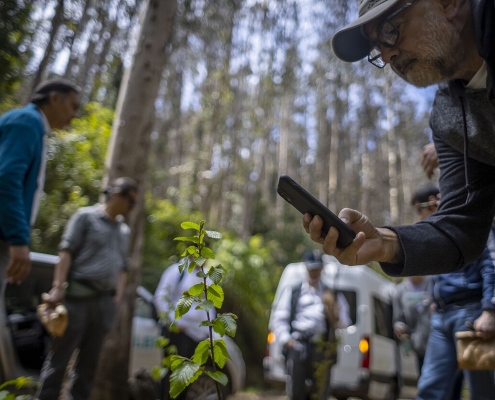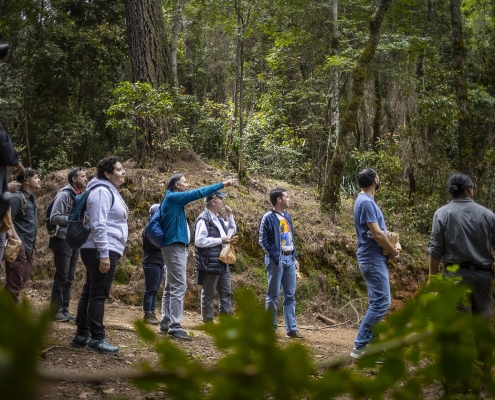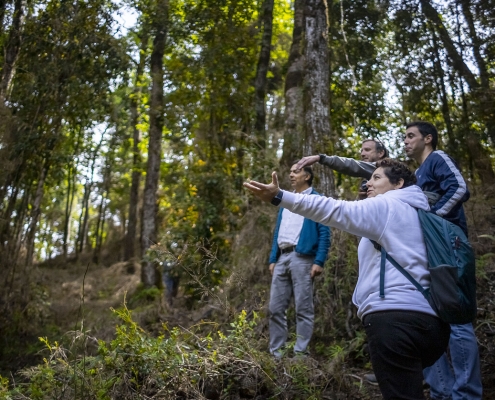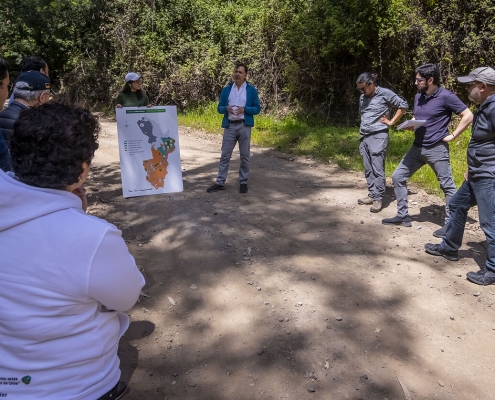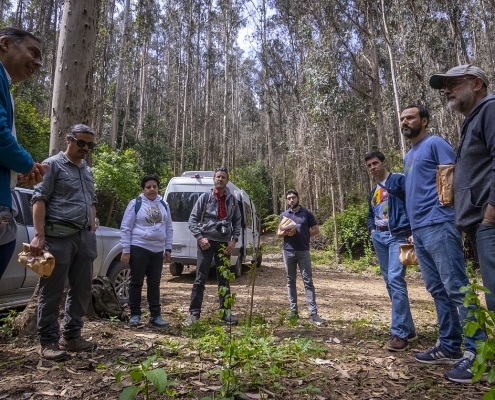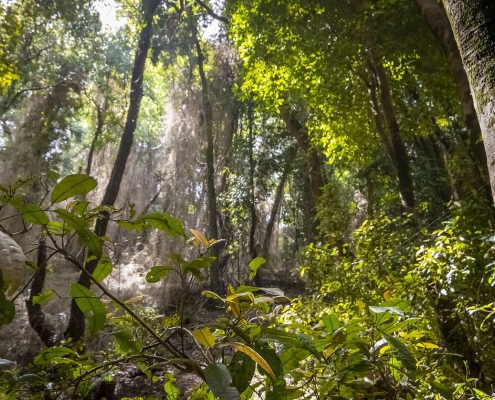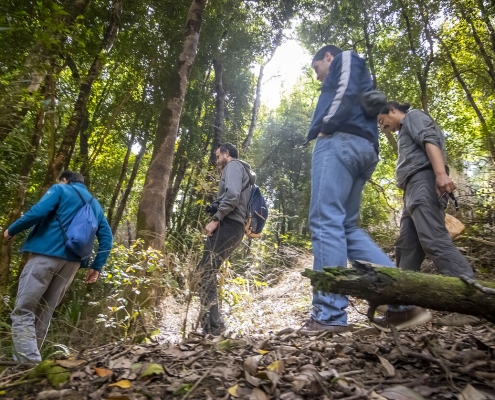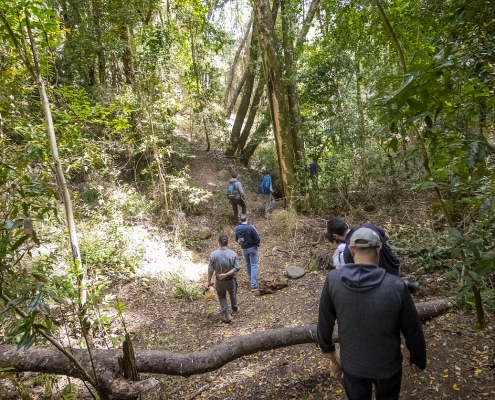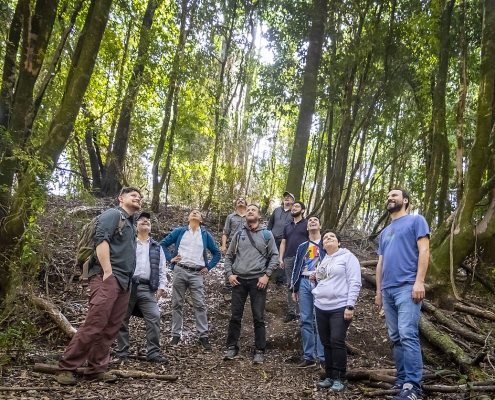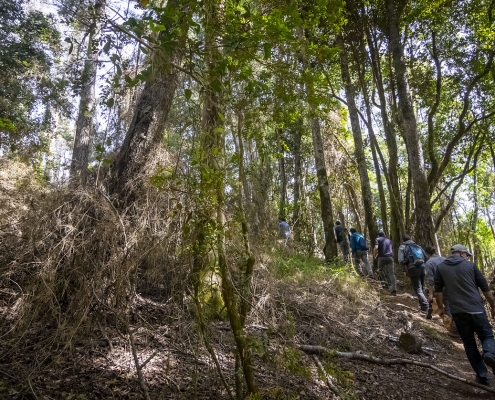Teachers Visit Campus Naturaleza Project Grounds
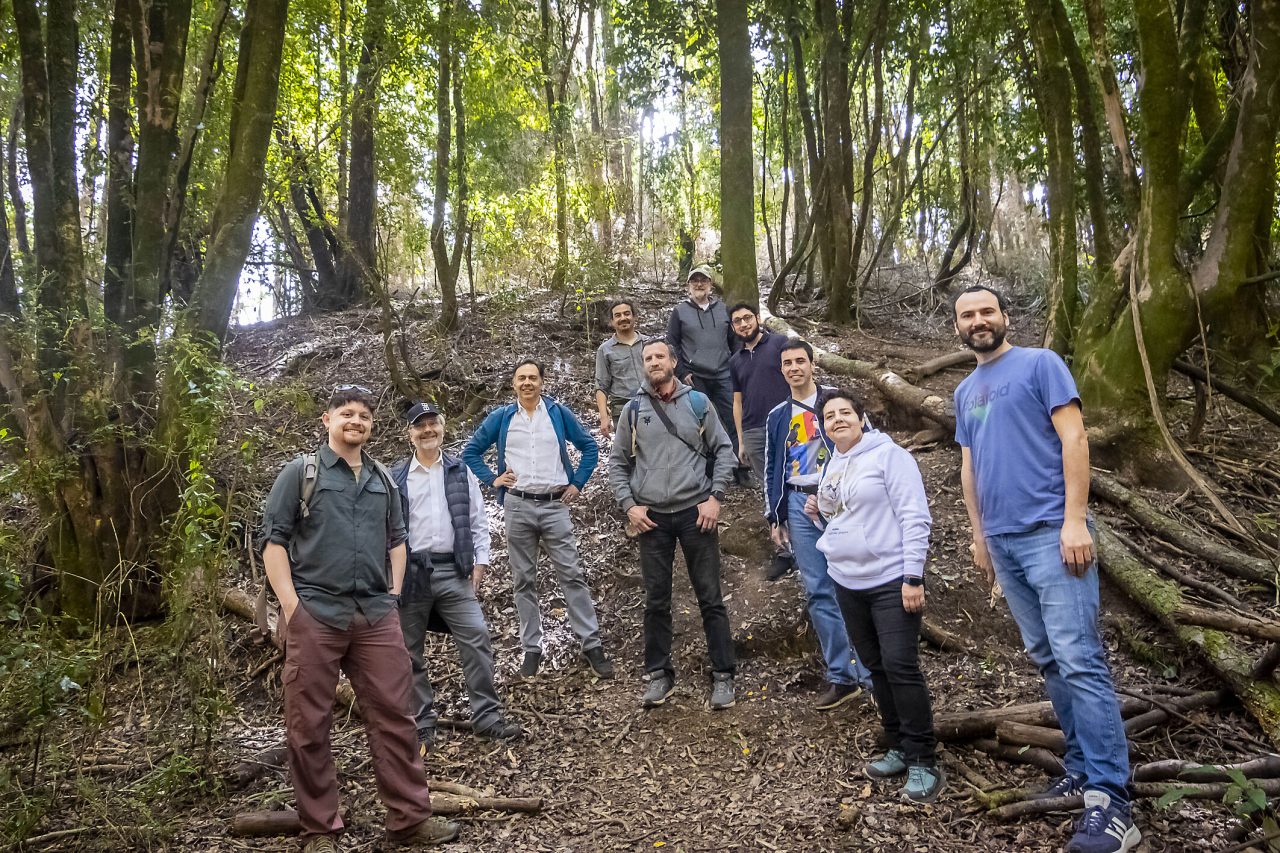
An insight from direct experience in the native forest was what academics from the University of Concepción took away. Professionals from various fields of university knowledge were convened as part of the Technical Advisory Committee, a body that will provide support and technical assistance on various research topics included in this unprecedented national initiative.
Appreciating and experiencing firsthand the native forest was the objective of the Technical Advisory Committee's visit to the grounds where the Campus Naturaleza Universidad de Concepción project will be implemented. Academics and experts from different fields of university knowledge were able to understand the implications of this unprecedented project in Chile, which will focus on nature conservation, ecological restoration, human well-being, and mental health, among other areas.
The Technical Advisory Committee represents faculties and academic units that will provide support on research topics and technical assistance for this University of Concepción initiative. "This visit is very significant because the invited academics will be able to convey to their respective groups what we have as a university community and what they can contribute from their respective disciplines," says Dr. Cristian Echeverría L., Director of the Campus Naturaleza project.
In this regard, he adds, "It was a progress activity for our project, in which we expressed the purposes of the initiative and how it aligns with the university's strategic plan. The important thing is that the Technical Advisory Committee was able to firsthand experience what the project is about, through a tour of the heart of Campus Naturaleza, which is the remnants of native coastal forest that survive here, just minutes from the university," points out the UdeC academic.
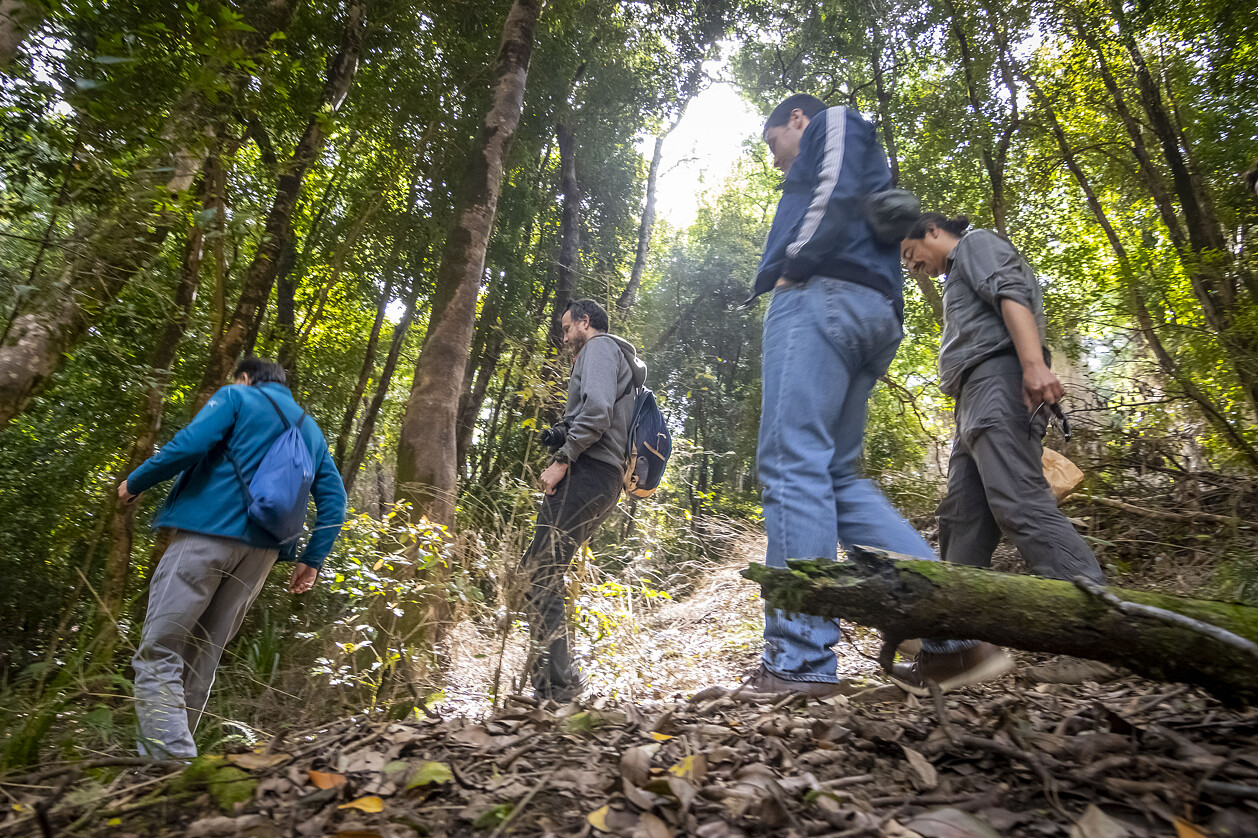
Likewise, as part of the activity, Dr. Paula Aravena A., Veterinarian, Director of the Wildlife Rehabilitation Center at the University of Concepción, states that "I find this initiative and commitment very interesting because it involves many managers from different faculties and different perspectives, which is something that is not usually done in any instance at the national or international level. In general, decisions are made by some nuclei of professionals, but here there is an interactive link where we all work together to move this forward as what it is, a multidiverse ecosystem, from the soil to the animals, through all vegetation."
"Wildlife today has limitations for its mobilization and maintenance. Places like this that not only harbor native vegetation but also native wildlife are very important to maintain the ecosystem balance of the country and to withstand global climate change," adds the faculty member and researcher from the Faculty of Veterinary Sciences.
Natural Laboratory
Expressing his positive view of the activity, Dr. Ronald Mennickent C., Director of Research and Artistic Creation at the University of Concepción, says, "This is a project with great expectations for multidimensional development, which also touches on many aspects related to conservation, linking with the environment, research, and conservation of threatened native species at this time."
"This is a natural laboratory, an opportunity for the institution to project itself from now to 5, 10, 20 years ahead, with a great impact not only scientific, for its intrinsic value in research, but also with an impact on our natural and social environment, because the project can also educate new generations. So, that is of primary importance, as it is a heritage not only of the University of Concepción but of our region. I believe it is essential to incorporate complementary perspectives that allow making much more informed and comprehensive decisions, because nowadays we are much more aware that we have to coexist with nature in a wise way, thinking that we have a planet to inhabit sustainably," he emphasizes.
On the other hand, Ángel Oñate, academic from the Faculty of Biological Sciences, comments that although the project is just beginning, there are good intentions from the university towards the community by preserving these native forest areas within the grounds, which need to be cared for. "The good thing is that here, species that are endangered will be created and preserved," highlights the professional.
The Technical Advisory Committee is part of the technical consultation bodies of the Campus Naturaleza Universidad de Concepción project, included within its governance model. This body will provide academic support for the initiative and will materialize the support of experts in various fields of university knowledge.

